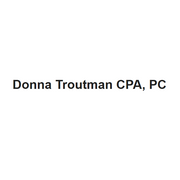
In March of 2020, Congress passed the Coronavirus Aid, Relief, and Economic Security (CARES) Act. This emergency funding bill provides financial relief to individuals and businesses during the COVID-19 global pandemic. Specifically, the bill includes important changes to retirement plans and their taxation. Accountants have become essential in planning for the tax impact of these changes with their clients. The information below summarizes some of the retirement plan relief provisions of the CARES Act.
How the CARES Act Impacts Retirement Funds
Can I still contribute to my Individual Retirement Account (IRA) for 2019?
The Cares Act extended the deadline to contribute to an IRA for the 2019 tax year from the standard due date of April 15, 2020 to July 15, 2020. Since the 2019 tax return filing due date was extended to July 15, 2020, this provides taxpayers with additional time to fund their IRAs as well for the 2019 tax year prior to submitting their returns.
Can I withdraw money from my retirement account if needed to pay bills during the pandemic?
 The CARES Act allows taxpayers to withdraw up to $100,000 from their retirement plans to cover their “coronavirus” needs without paying the 10% premature distribution penalty. The distribution must be made between January 1, 2020 and December 31, 2020 and must be made to an individual: who is diagnosed with COVID-19; whose spouse or dependent is diagnosed with the virus; who closes their business or reduces their business hours; or who experiences financial hardships including being laid off, having work hours reduced, being unable to work due to a lack of child care, or meeting other factors as determined by the Secretary of the Treasury.
The CARES Act allows taxpayers to withdraw up to $100,000 from their retirement plans to cover their “coronavirus” needs without paying the 10% premature distribution penalty. The distribution must be made between January 1, 2020 and December 31, 2020 and must be made to an individual: who is diagnosed with COVID-19; whose spouse or dependent is diagnosed with the virus; who closes their business or reduces their business hours; or who experiences financial hardships including being laid off, having work hours reduced, being unable to work due to a lack of child care, or meeting other factors as determined by the Secretary of the Treasury.
Can I Repay My Coronavirus Retirement Distribution?
A Coronavirus retirement distribution can be repaid to a taxpayer’s qualified plan within three years after the date of the original distribution. This enables individuals to return the funds to their retirement accounts without being subject to the normal annual limitations. Additional provisions are also available if the distribution is considered a loan from a qualified employer retirement plan. It is best to discuss your options with your plan administrator and your tax preparer prior to taking your distribution.
How Do I Pay Tax On My Coronavirus Retirement Distribution?
A coronavirus-related distribution must be included in gross income equally over a 3-year period starting in the tax year the distribution was received, unless other elections are made by the individual.
What are the required minimum distributions for 2020?
The CARES Act suspends all required minimum distributions (RMDs) for 2020 from qualified retirement accounts, including 401(k)s, 403(b)s, 457(b)s, and inherited retirement accounts. This means that older individuals, normally required to take annual distributions, do not have to withdraw any funds from their qualified retirement accounts for 2020, which will allow their investments to recover from any stock market declines experienced throughout the year.
When you need help with tax planning for your retirement, get in touch with Donna J. Troutman, CPA, PC. This accounting firm provides tax preparation, payroll, and bookkeeping services to clients throughout the Lewisburg, PA area. Call (570) 523-7337 to schedule an appointment for a tax or accounting consultation, and visit the website to learn more about their services provided to individuals and businesses.
About the Business
Have a question? Ask the experts!
Send your question

